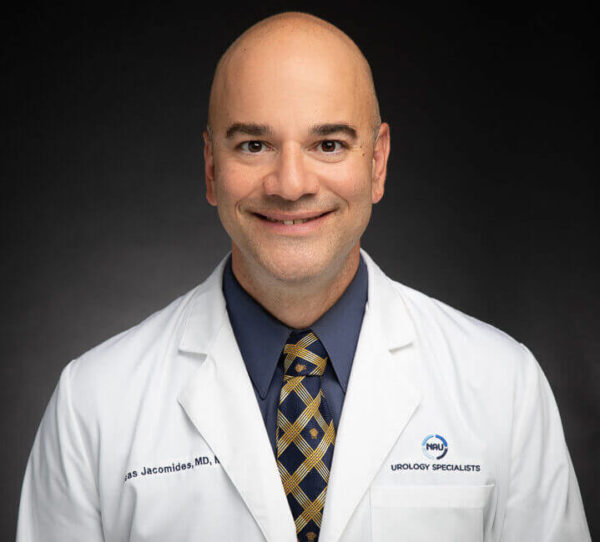The Armor Men’s Health Show is brought to you by NAU Urology Specialists.
For questions during the week, call us at 512-238-0762, or visit our website.
Welcome back to the Armor Men’s Health Hour with Dr. Mistry and Donna Lee. I’m Dr. Mistry, your board-certified urologic host, here with my cohost Donna Lee. When I tell people that I’m doing this, this show and podcast and that I have this huge family in this practice, the first thing they ask is how do I, how can I do it? Like how can I get it all done? I jokingly think that I have ADHD, but the truth is I have an amazing wife who takes care of 95% of my life. And an amazing staff here at the office.
Speaking of ADHD…
You know, from the beginning of my desire to do this show, you could only talk about testosterone, erectile dysfunction, and large prostate, prostate cancer, and all the amazing things that we do, without getting to some of the psychological things. Over the course of this show, we do plan on talking about things like alcoholism and depression and anxiety disorder. But I’m seeing so many patients with other neuro-cognitive kinds of conditions. And I started thinking about “What am I worried about myself?” I’m in my 40’s. I went to school for many years and I feel like my success as a professional is dependent on a lot of the motivation. But I worry about my memory, and I worry about ADHD and hyperactivity.
Guest Dr. Jennifer Reynolds
So, we have a wonderful guest today, Dr. Jennifer Reynolds. She’s the CEO of the NEAT Center of Austin. That’s the Neuropsychological Evaluation and Therapeutic Center of Austin.
We use neuropsychology evaluations often in children when we’re trying to diagnose them with behavioral or issues related to how they’re progressing in school. And then we know about neuropsychological evaluations in older patients when I’m trying to diagnose memory, dementia, but there’s this whole big middle. When people think of a neuropsychologist, they think mostly ADHD assessments, or you know, autism spectrum disorders.
Middle-Aged Men and ADHD
I’ve had an increase of middle-aged—40 to 60-year-old men—coming in worried about cognitive decline and memory issues. A lot of times I see some ADHD issues hand-in-hand with this, meaning inattention, inability to concentrate, impulsivity. All of these things that need to be parsed out from say dementia or you know, early-onset Alzheimer’s. There’s something that happens in the neurotransmission of a man’s brain between 40 and 55 specifically with dopamine and testosterone that can affect memory and cognitive ability, the personality of the man, problem-solving, reasoning, emotions. And all of these things can be examined by a neuropsychologist with a very thorough assessment—valid, reliable assessments.
Diagnosing ADHD
These aren’t things that are self-report where I ask you 10 questions and you say true or false with, you know, or on a scale of 1 to 10. This is 6 hours of testing. But it goes in and out of the brain very specifically to figure out what lobes are functioning best, what lobes maybe need a little more working out so to speak—you use it, or you lose it. And is this an ADHD issue that’s being exacerbated by low testosterone? Or perhaps it is early-onset dementia, or an Alzheimer’s memory problem?
ADHD Signs and Symptoms
From young to old, I get the same blanket diagnosis of ADHD that comes in my office, and they need validation of that because the diagnosis usually comes from a general practitioner who says, “Well, let’s try this cocktail of Adderall or Vyvanse. And if that works, then you have it.”
ADHD is a blanket term that I’m not really fond of. What it really means is a cognitive redistribution of thinking. So, people with attention deficit aren’t always hyper and jumping off walls, and they’re not always inattentive and daydreaming. There’s a lot, there’s a myriad of things that go on, which is the thought emotional process. For example, when you say, give me an example of what it may look like in a day to day life…so somebody with “ADHD” may have a to-do list, right, at their house and they got 10 things to do: change the light bulbs, you know, take out the trash. And before you know it, you’ve got 1/16th of everything done and not a whole thing of anything done.
It can get more frustrating when you have changes in dopamine and testosterone because it’s going to be exacerbated. There’s going to be issues with your relationships because you don’t seem to be paying attention. And by the way, men, it’s not your fault. I mean, it’s dopamine’s fault. You can blame it. So just kind of parsing out and figuring out what is going on in the brain at that age is really important. Our executive functioning cortex, the frontal cortex, is done developing and we’re in mid-life and trying to figure out the brain. Just like any other organ in the body, it needs certain things at certain times in life.
Unfocused, but not ADHD
What kind of behavior might a person exhibit if they don’t really have ADHD but are just maybe not “focused”?
Procrastination is a big one that I see a lot of times in both men and women. The inability to overcome inertia. There’s something important to do. And instead of doing that important thing, you’ll sit there and look on Amazon prime for a new phone cover for 5 hours. Believe it or not, that is a component and attendant of attention deficit. So, what happens is you have an ability psychologically to go to a cognitive fugue state, and you distract from what you need to do because you’re overwhelmed by that which you need to do. You see a lot of procrastination. And then you see guilt coming from the fact that you procrastinated; loss of focus, so even when you do start on that important task, the mind will wander, the mind will drift.
You’ll get tired. I mean, physically, this is something that is converted. You become tired. It’s exhausting just to think about having to think. All of these things start occurring and people start wondering, “Well, am I losing my mind? Am I losing my memory? Am I going to be Grandma Rose in 4 years, who doesn’t know who my kids are?” You know, that sort of thing. And that’s terrifying. It’s terrifying for anybody. So, I think it’s very important on many levels, but certainly on the memory aspect and ADHD aspect to have it thoroughly evaluated for peace of mind.
Treating ADHD
People don’t want to go through extended evaluations. People just want this idea that there’s going to be a pill that fixes it. And then when you put them on the pill, they’re like, well, is there a way to do this without a pill? And there are ways to address ADHD without the use of medications. The problem is that historically, the way that we’ve gone about treating ADHD is through amphetamines. And we build a tolerance to those very quickly within the brain, so they don’t work as well when you’re older.
However, that being said, once you’ve had a thorough assessment—and you know you’ve had a thorough neuro-psych assessment when it’s 5 hours long. But once you’ve had that assessment, then you find learning mnemonics based on the lobes of your brain and what I figure out they’re doing and what they’re not doing. So, if there’s under-compensation, there are mnemonics that you know, I can teach and psycho-educate on that will help compensate, because the brain, you know, is the same as any muscle—use it or lose it.
Stimulating those weaker parts of the brain is more likely to make them more efficient by reconnecting. Neuroplasticity is an amazing thing. But again, you’ve got to figure out where that needs to happen. And in order to do that, you need a thorough assessment.
Ready for your assessment? Contact Dr. Reynolds through neatcenteraustin.com or by calling (512) 540-4767.
The transcript has been edited for length and clarity. Listen to the original episode on The Armor Men’s Health Hour podcast.
To make an appointment, call us at 512-238-0762, or visit our website.














